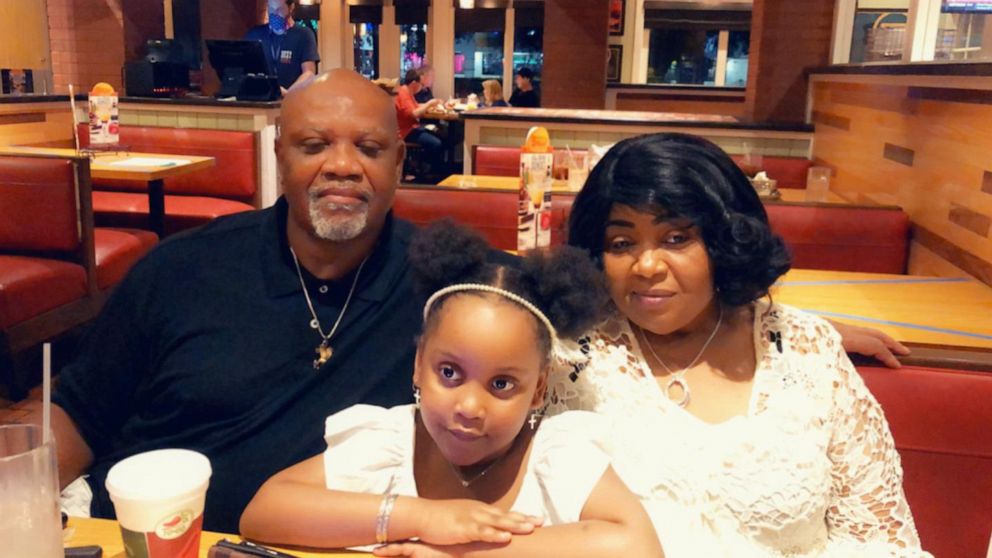Families say incidents show pattern of unfair punishment for girls of color
Shocking video showed 6-year-old Kaia Rolle being hauled away from her school by a police officer, after she kicked a teacher during a tantrum in an incident last year.
Body camera footage captured it all, including Rolle’s pleas to “let me go” and insisting “I don’t want to put handcuffs on.”
Nevertheless, the first grader was placed in handcuffs and taken to a juvenile detention center to be booked and fingerprinted in September 2019, according to Rolle’s grandmother Meralyn Kirkland.
“They took me in this room, they said she wasn't finished yet,” Kirkland told ABC News about picking her up from the juvenile detention center. “They needed to me to sign some papers. And as I went around the entrance of the doorway. At the left was a desk. And on that desk, truth be told, were mugshots of Kaia.”
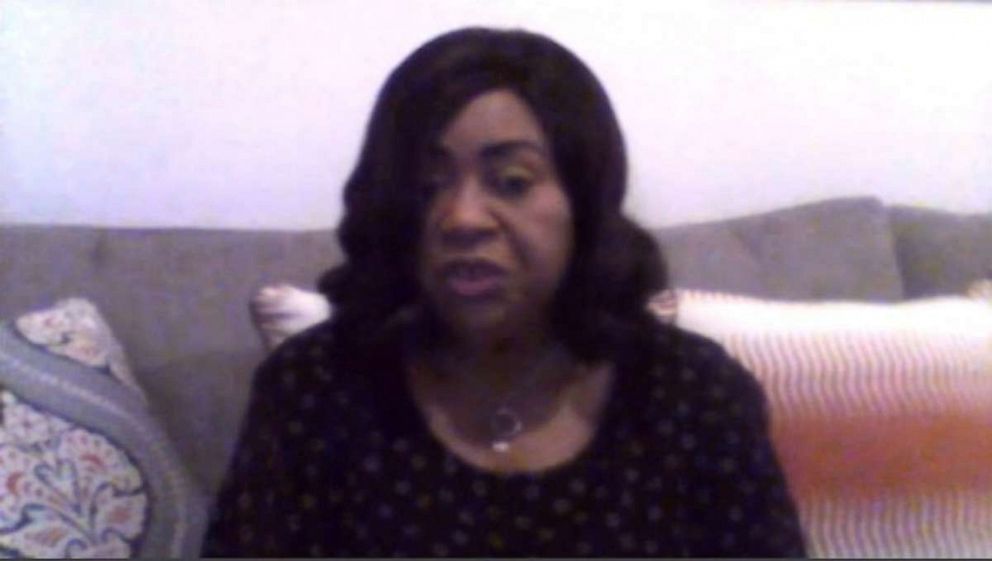
What Kirkland said hurts even more than seeing her young granddaughter’s mugshot, is the disappointment she feels with Kaia’s school. Kirkland said school officials were already aware that Kaia had sleep apnea and that it was triggering her tantrums.
“A lot of people said, ‘Well why didn't you tell the school?’” she said. “The school was very familiar. We were working with the school. It's not like it just happened and they didn't know what to do.”
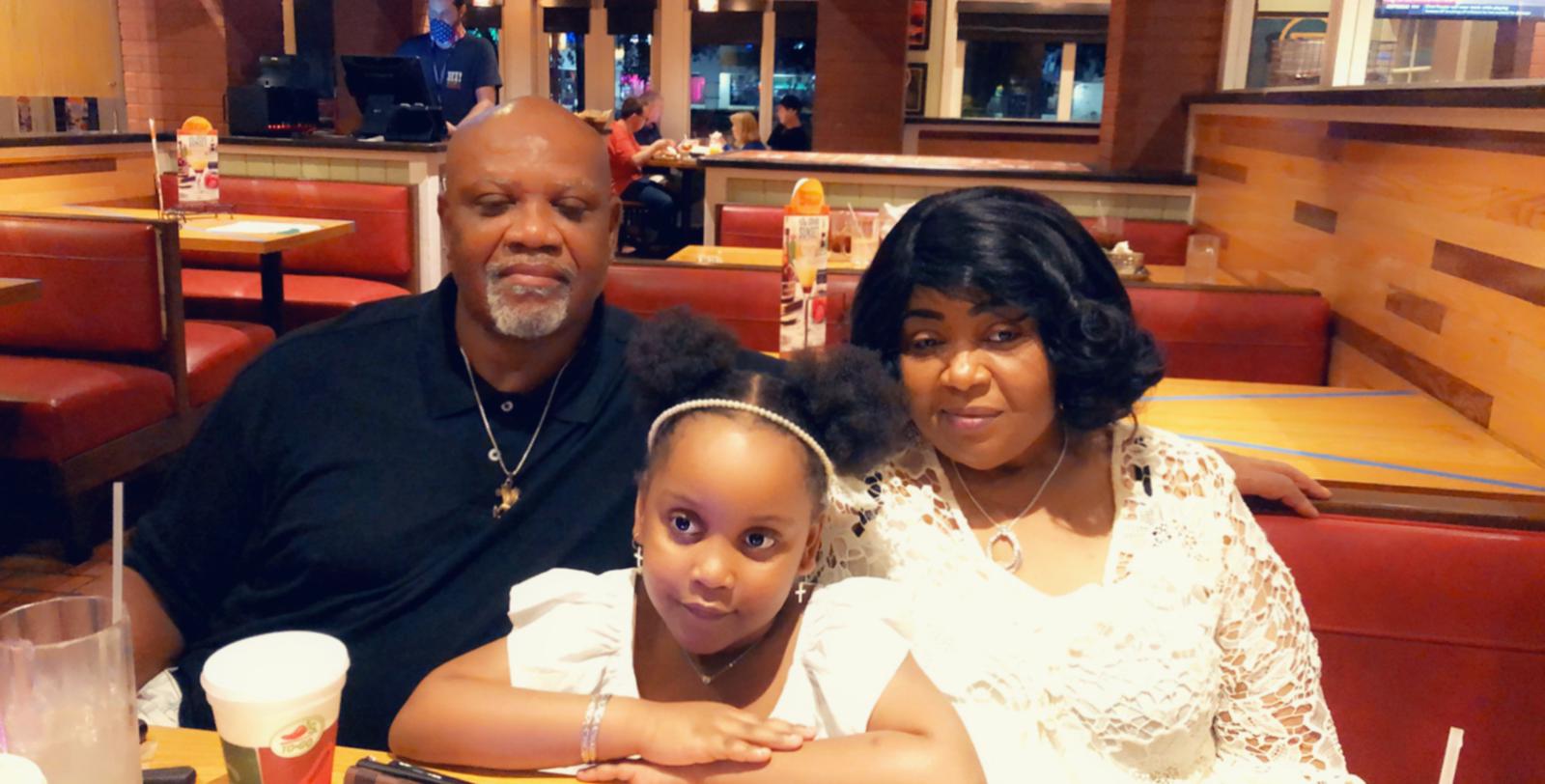
Black girls are five times more likely than white girls to be suspended from school and four times more likely to be arrested, according to a 2020 study by The Education Trust and National Women’s Law Center.
“Black girls are experiencing this reading of their behaviors as more adult when they're as young as age five, and that it peaks when they're between the ages of 10 and 14,” said Dr. Monique W. Morris, the founder of National Black Women’s Justice Institute and an author who has written about the damaging effects of over disciplining young Black girls.
“Adults are then engaging with Black girls as if they are Black women, which means that we're more likely to have this perception about Black girls needing less protection, less comfort, less nurturing.”
Treating Black girls as adults can affect the way they’re perceived doing normal childhood activities, according to Morris. Zulayka McKinstry said it happened to her daughter.
“I get a call… stating that [the school] needed to take my daughter's vitals because she was ‘hyper and giddy,’” McKinstry told ABC News. “What did she do? Immediately I snap. Like, what do you mean? Her vitals. She's twelve. She's hyper and giddy. That's normal behavior.”
The now-14-year-old and her friends are speaking out for the first time, claiming they were taken to the nurses office to be strip searched at a Binghamton, New York, middle school in January 2019. The four girls involved are all students of color and their families have filed a lawsuit against the school district. The Binghamton school district denies that a strip search ever happened.
The girls said they were on their way to lunch activities and were stopped by school officials for laughing. Their parents say the principal called their parents that afternoon, reportedly telling them he was concerned that they were “hyper” and “giddy,” according to the parents.
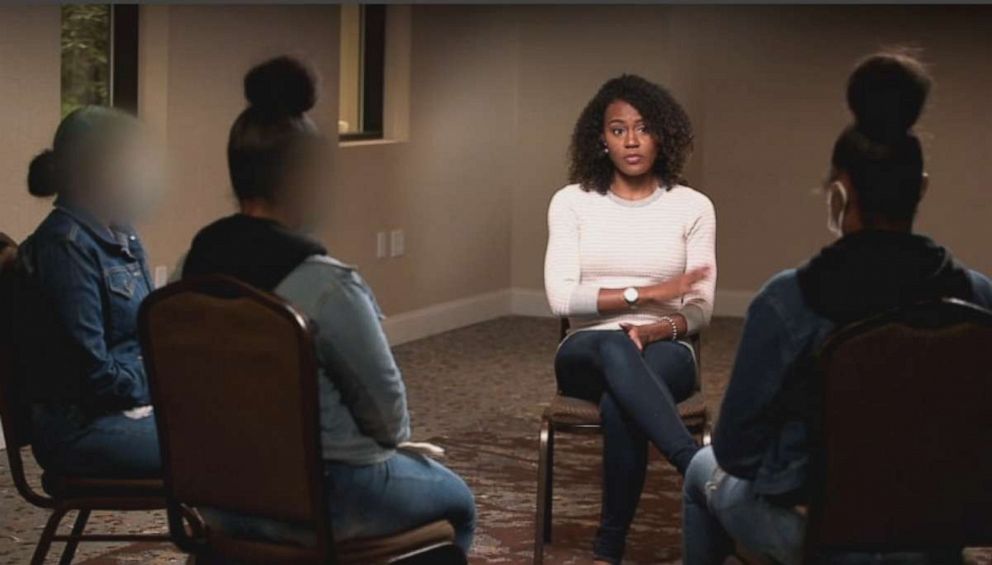
“He's like, ‘Well, she was in the hallway with a group of girls and they were hyper and giddy.’ He said their behavior was abnormal,” Chanderlia Silva, another mom of a girl in the group, said. “I was like, ‘Are you trying to say that my daughter was high?’”
The girls told ABC News they were detained in the nurse’s office, where one by one, they were called in to be searched. Silva and McKinstry’s daughters said they were told to undress.
“She told me to zip down my sweater. But I didn't have a shirt. And like, as I was zipping it down, I zipped it back up and I told her that I wasn’t going to do that,” one of the girls said. “Then after that she just patted me down.”
McKinstry’s daughter said she took off all her clothes until “I was in my bra and my panties.”
The third girl who spoke to ABC News said that she refused to take off her clothes.
"I said ‘I’m not taking off my sweater,’” she said.
After being searched and their belongings inspected, school officials found the girls had nothing of concern on them, according to the school district’s lawyers.
The Binghamton school district denies that a strip search ever happened. Lawyers representing the district issued a statement to ABC News that said, in part, that “the students presented symptoms that suggested the school nurse should provide a standard health and safety check.”
“The nurse performed this standard check, during which the girls remained clothed,” the statement said. “After their visit to the nurse, the students returned to their classrooms without incident, complaint, or discipline of any kind."
“Surveilling the bodies of young people because their joy is perceived as suspicious, is just unacceptable,” Morris said. “The fact that so many of our children's bodies, are treated as disposable really does link back to this, this representation of the Black body, particularly the Black girl’[s] body as a public entity. This treatment of Black girl bodies as something to be policed, something to be controlled. Something to be monitored. It stems from harsh, you know the harsh vestiges of slavery, and we have to reconcile that.”
In both the Binghamton and Orlando incidents, the families said they are convinced race played a major role in the actions taken against their girls.
“As a parent that lives here in Broome County, it's not unheard of,” McKinstry said of the Binghamton incident. “It's a shock that it's my kid, but it's not a shock that it happened to a colored kid.”
Kirkland, in Orlando, said Kaia, now 7, told her she knew why it happened to her.
“I said, 'Why?' Thinking she was gonna say, 'because I have the medical condition and I have sleep apnea.' And she says, 'It's because... I'm a little child of color.'”
Her grandmother said that since her arrest, Kaia has been diagnosed with PTSD and separation anxiety, adding that she’s had to switch schools and has developed a fear of strangers.
Her grandmother says she fears for her future and the long-term impacts of the trauma she endured.
“She could react negatively to a simple traffic stop,” Kirkland said. “She could speed off, and maybe crash the car, or she could maybe react violently to the officer or get shot or something because you know the officer doesn't understand that she had a trauma.”
The teens in New York say they continue with the fallout from that day in the nurse’s office nearly two years later.
One girl involved in the Binghamton incident said she doesn’t “like opening up” to people, including her family since the incident.
Yet, another girl in the Binghamton incident said the event caused her to have “insecurities.”
“I avoid doing things, going in places, being around certain people,” she said. “It’s like in school, a teacher is telling me to [do] something. It’s like I’m [going to] listen, but should I listen? What if that teacher's lying or what if they don't really know?... Everything is questioned now.”
Their friend said she started getting panic attacks. “I never had to deal with that,” she said.
“This is something that's going to go with us forever,” Silva said. “It’s not anything that just goes away. It's not easy every day when she's like, ‘I don't want to go to school.’ When I am in her room and... all the lights are off and she's just laying in bed and I'm like, ‘What's wrong?’ It's like that's a bad feeling.”
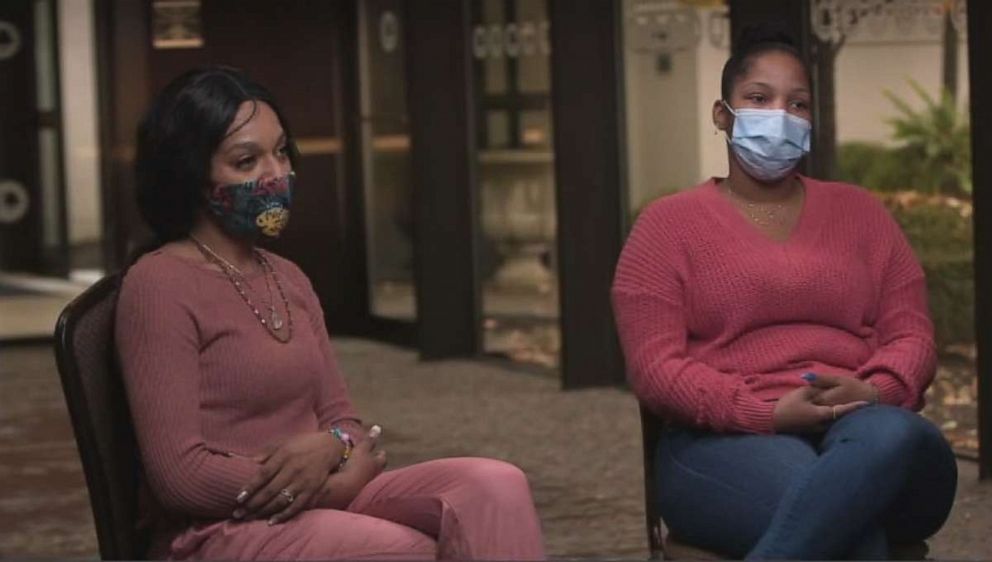
Morris says these examples of arresting a 6-year-old and allegedly strip-searching girls for being “hyper and giddy” are examples of what she calls “push out.”
These incidents make these girls more likely to struggle in school and increases their chances of ending up in juvie, or even worse, on the streets, she says.
“We've modeled much of what we've created in our learning spaces, from the politics of fear that tell us we need more guns, we need more surveillance we need harsher punishment,” Morris said. “What is working in some communities that are not disproportionately Black and Brown is to build relationships and bring in counselors and have psychologists and have nurses and have healers on campus that can actively engage young people in this process of learning and development, which is absolutely more appropriate and more effective.”
Silva and McKinstry say they want justice for their daughters. With the assistance of the NAACP legal defense and educational fund, they’ve filed a lawsuit against the school district.
“I don't think that they thought that these girls had parents who was going to believe them. And fight for them,” Silva said.
“I'm gonna go as far as it's gonna go until justice is served because I believe what my daughter said,” McKinstry said.
One of the officers involved in Kaia's arrest in Orlando was fired days after taking her into custody.
Kirkland has worked alongside Florida legislators to get the Kaia Rolle Act passed, a first step to putting procedures in place for arrests involving children under 10. Now, they are pushing for a law that would make arresting children under the age of 12 illegal, statewide.
“We're not going to give up until we can have that law changed that allows 6-year-olds to be arrested,” Kirkland said.
She says Kaia remains resilient and isn’t letting trauma break her spirit.
“She wanted to be the first female president,” Kirkland said. “I told her the sky's the limit. She only has to reach for dreams.
“If I lose at being president, I’m going to be mayor,” Kaia said.
